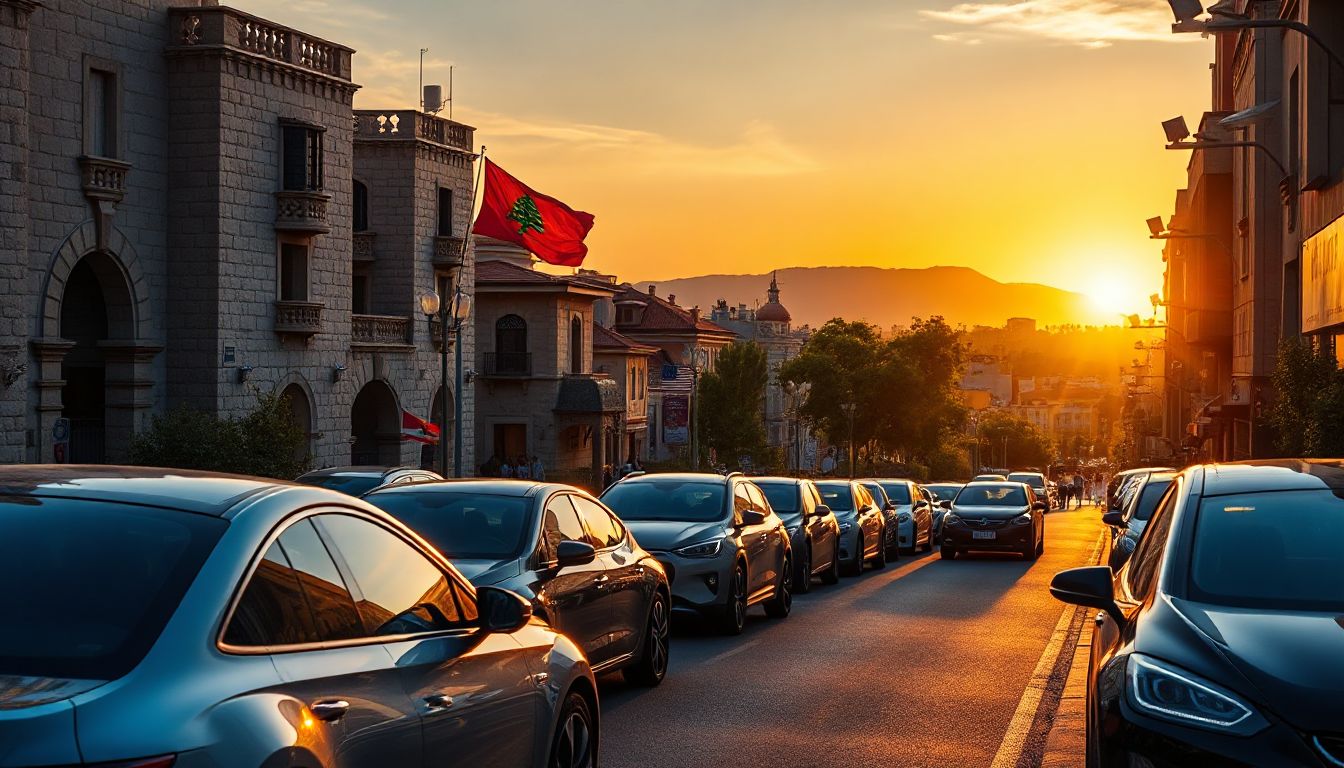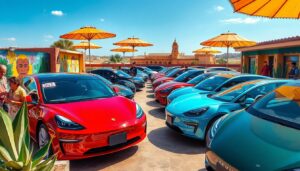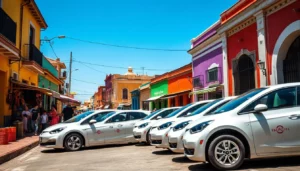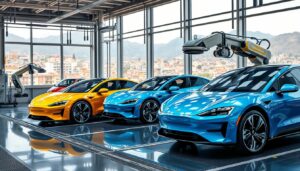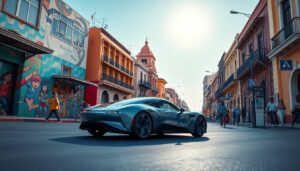Introduction
The world is moving away from gas-powered cars toward green, electric vehicles. Countries everywhere are making big plans to lower pollution and fight climate change. Lebanon isn’t left behind in this shift. Still, the country faces many hurdles when it comes to electric cars. Understanding Lebanon’s unique challenges and chances can help us speed up the switch to clean transportation. It’s about more than just buying a new car; it’s about shaping a cleaner, greener future for everyone.
The Current State of Electric Vehicles in Lebanon
Overview of EV Market Penetration and Trends
Electric cars in Lebanon are a small part of the road right now. But their numbers are growing gradually. According to recent estimates, less than 1% of vehicles on Lebanese roads are electric. While that’s tiny compared to global figures—some countries have over 10% EVs—it’s a start. Regional neighbors like Jordan and the UAE see faster growth, mainly thanks to better infrastructure and incentives. Many factors, from rising fuel prices to increasing environmental awareness, are pushing Lebanon’s EV scene forward.
Government Policies and Incentives
Lebanon’s government has started to roll out policies aimed at boosting electric transportation. Some laws offer tax reductions or import discounts for EV buyers. However, these measures are limited and not enough to spark widespread adoption. No comprehensive national plan exists yet for installing charging stations or funding EV projects. Experts say stronger government support could turn the tide, making electric cars more appealing and accessible for everyone.
Charging Infrastructure in Lebanon
One big barrier to EV use is the lack of charging stations. Today, most chargers are found in Beirut and a few other big cities. Outside the city, finding a charging point can be tough. Those that exist often have slow chargers, which take hours to fill a battery. Several private companies and startups are working on new charging hubs, especially along main roads and highways. Still, the network is not enough to support a mass shift to electric vehicles.
Challenges Facing Electric Vehicle Adoption in Lebanon
Economic and Financial Barriers
The cost of an electric car remains high in Lebanon. Most models are imported, adding to the final price with taxes and fees. Plus, car loans and financing options are limited. Things got worse with Lebanon’s economic crisis, making EVs seem like a luxury few can afford. For many, an electric car feels out of reach. To tackle this, consumers should look for available incentives or explore leasing options that can ease the wallet strain.
Infrastructure and Technical Limitations
Installing charging stations outside the capital is no easy task. Rural towns and suburbs often lack the necessary grid capacity. Electricity supply can be unreliable, with frequent outages, which challenge keeping EV batteries charged. Upgrading the national power system and expanding charging networks are key steps forward. The private sector has a role too, building more stations and offering better tech.
Public Perception and Awareness
Many Lebanese still see electric cars as a new or risky option. Myths, like EVs being unreliable or too expensive to maintain, spread fast. Awareness campaigns can help demystify these cars and show how they can save money in the long run. Educating consumers about the environmental benefits and safety features of EVs can boost confidence and interest.
Opportunities and Benefits of Switching to Electric Cars
Environmental Impact
Electric cars produce no tailpipe emissions and help clean up Lebanon’s air. They can cut carbon dioxide and other harmful gases, fighting climate change. With Lebanon committed to global climate goals, EVs can play a vital role in reducing pollution and protecting public health.
Economic Advantages
Though the initial purchase can be high, EVs save money over time. They cost less to fuel since electricity is cheaper than gas. Maintenance is also simpler—fewer moving parts means fewer repairs. Plus, the shift to electric vehicles creates new jobs, from manufacturing to charging station management. These are steps toward a healthier economy.
Technological Advancements and Future Trends
Battery tech keeps improving, making EVs last longer and charge faster. Upcoming innovations, like ultra-fast chargers, could make recharging nearly as quick as refueling gas cars. Around the region, countries like Israel are already seeing success stories in EV adoption. Lebanon can learn from these experiences and adapt policies and infrastructure to support future growth.
Actionable Steps for Stakeholders
For Consumers
If you’re thinking about an EV, start by researching models and possible incentives. Use online tools to find local charging stations and plan longer trips. Remember, switching to eco-friendly transportation helps both your wallet and the environment. Consider leasing or financing options if buying new feels out of reach.
For Policymakers
Lebanon needs stronger policies to promote EV use. That includes expanding charging stations, offering better financial incentives, and investing in a reliable power grid. Public-private partnerships can accelerate infrastructure projects. Awareness campaigns are also vital to educate citizens on the benefits of electric cars.
For Business and Industry Leaders
There’s a real opportunity here. Importing EVs, setting up charging stations, or offering maintenance services can be profitable. Collaborating with government initiatives and crafting sustainable transport solutions will boost market growth. The early movers can shape Lebanon’s future in green mobility.
Conclusion
Electric vehicles are a growing part of Lebanon’s transportation future. They promise cleaner air, lower costs, and new economic opportunities. Yet, challenges like infrastructure gaps and high costs still slow progress. With concerted efforts from the government, businesses, and consumers, Lebanon can overcome these barriers. Together, we can unlock a sustainable, greener future—one electric car at a time. Now is the moment to embrace this change and drive Lebanon toward a brighter tomorrow.
